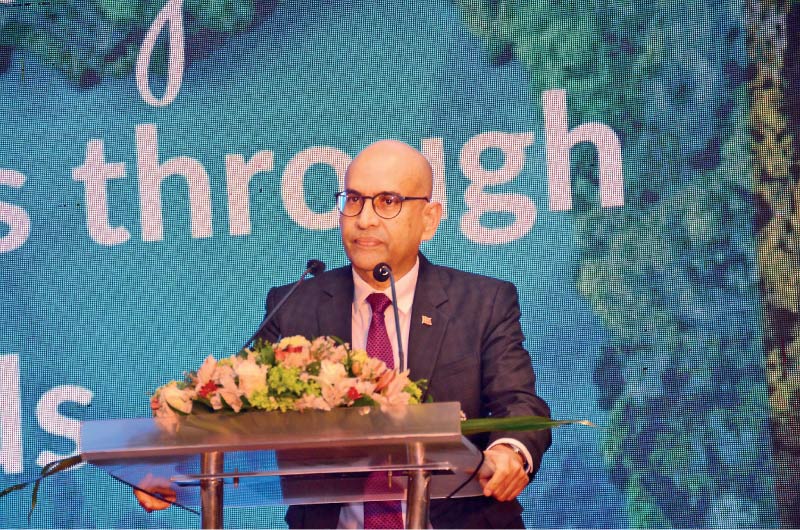Tuesday Feb 24, 2026
Tuesday Feb 24, 2026
Monday, 8 July 2024 01:13 - - {{hitsCtrl.values.hits}}

Securities and Exchange Commission of Sri Lanka Chairman Faizal Salieh
Securities and Exchange Commission of Sri Lanka (SEC) Chairman Faizal Salieh last week said the growing importance of ESG-conscious investing and the potential of sustainable bonds is to foster a greener economy.
Speaking at a seminar titled ‘Unlocking Opportunities through Sustainable Bonds: Towards a Greener Economy’, organised by the SEC, the Colombo Stock Exchange (CSE) and the Asian Development Bank (ADB), he highlighted the evolving landscape of investor activism, where increasing attention is given to environmental, social and governance (ESG) factors.
The seminar brought together experts and stakeholders to discuss the potential of sustainable bonds in advancing Sri Lanka’s green economy goals.
“A green and sustainable economic environment is now the joint responsibility of Government, Business and Civil Society,” he added.
Salieh noted that investors are now more concerned with impact reporting, climate change mitigation, social equity and the transition towards a circular economy.
He stated that creating a sustainable economic environment is a joint responsibility of the Government, businesses and civil society.
”This shift is driving demand for innovative green financing solutions and sustainable financial instruments,” he pointed out.
He noted that the sustainable bonds, such as green and blue bonds, play a crucial role in the global fixed income markets by funding projects aimed at creating a sustainable ecosystem.
“According to the Climate Bonds Initiative, the issuance of green bonds reached a record high of $ 1.1 trillion in 2023, driven by investor demand for climate-friendly projects,” he said.
Salieh stressed the importance of nature-based financial solutions in mitigating risks and protecting vulnerable communities in a warming world.
He also pointed out the significant climate finance gap identified at COP 28 and insisted on the need for countries to mobilise private capital quickly through capital markets to close this gap.
“Sustainable bonds, which finance projects with positive environmental impacts, are being integrated into mainstream investment portfolios to support this transition,” he added.
Salieh expressed satisfaction with the SEC’s efforts, supported by ADB, to establish a regulatory framework for sustainable bonds in October 2023.
“This framework allows Government entities, parastatal agencies and the private sector to raise capital for environmentally beneficial projects,” he said, adding that the framework includes mandatory independent verification and assurance processes to ensure transparency and build investor confidence.
Despite the regulatory framework being in place, Salieh noted the lack of new sustainable bond issues in the local market.
Against this backdrop, he urged stakeholders to collaborate and support each other to initiate issuances, even in the face of Sri Lanka’s default sovereign rating hurdle.
He called for increased commitment at all levels — Government policy, business strategy and market operations and suggested exploring ways to attract ESG-conscious investors despite the rating barrier.
Salieh called on the stakeholders to find meaningful solutions and accelerate the transition to a more sustainable and resilient financial system.